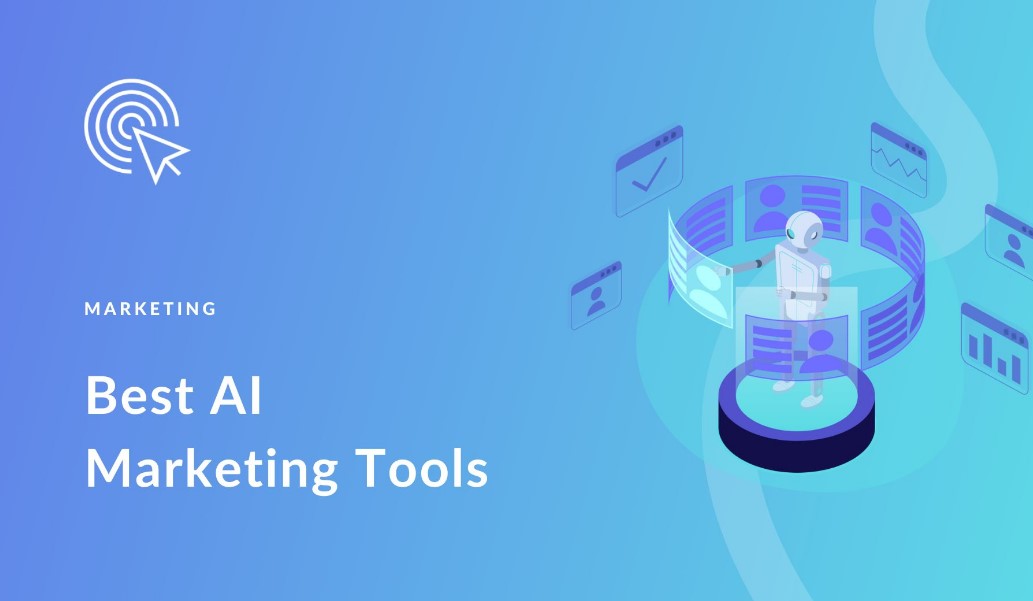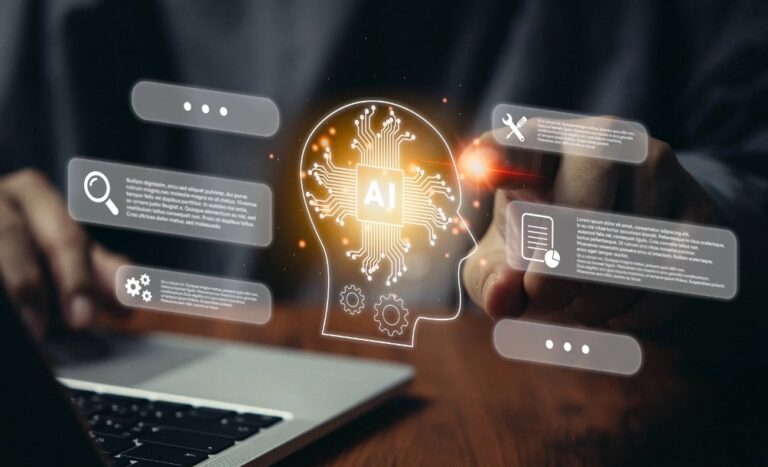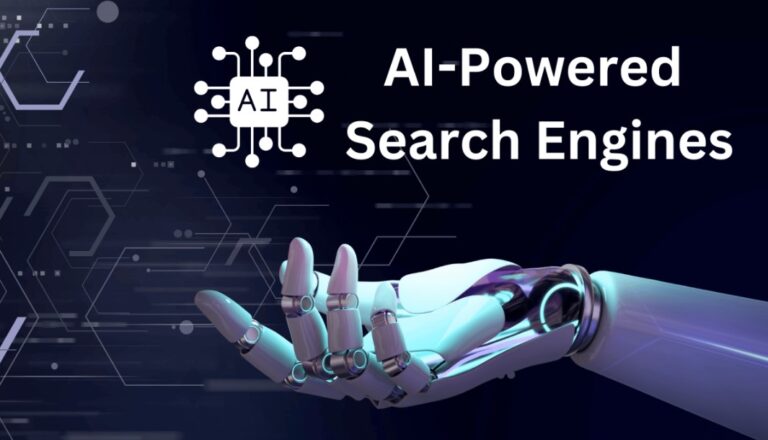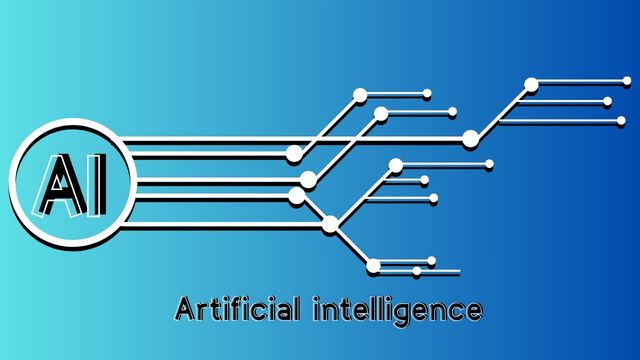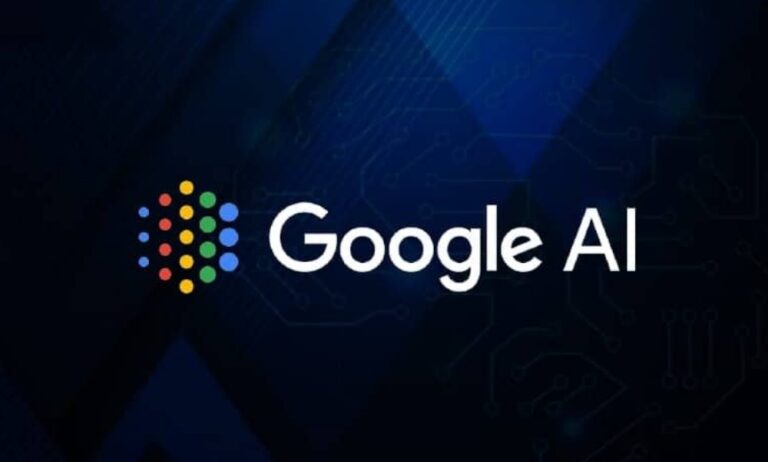Top AI Marketing Tools to Enhance Your Business Strategy in 2024
In today’s fast-paced digital marketing landscape, businesses must leverage technology to stay competitive. AI marketing tools are a game-changer, helping companies automate processes, gain deeper insights, and craft more personalized marketing strategies. As AI continues to revolutionize various industries, marketing is no exception. In this article, we’ll dive into the best AI marketing tools available in 2024, their benefits, key features, use cases, and pricing.
What Are AI Marketing Tools?
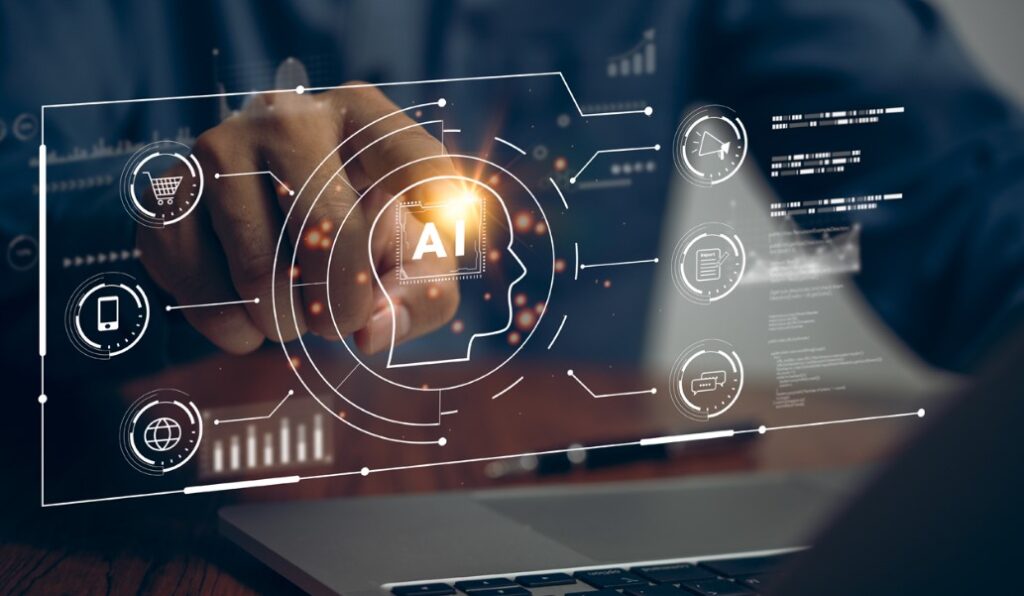
AI marketing tools refer to software applications and platforms that integrate artificial intelligence to enhance marketing strategies. These tools use machine learning (ML), natural language processing (NLP), data analysis, and automation to optimize and streamline various aspects of marketing, from customer segmentation to predictive analytics and content creation. AI tools can analyze large sets of data much faster than humans, identify patterns, and predict consumer behavior, enabling marketers to make data-driven decisions.
Key Features of AI Marketing Tools
AI marketing tools are reshaping how businesses approach digital marketing by automating tasks, providing advanced insights, and enabling better decision-making. Below are the key features of AI marketing tools that are transforming marketing strategies:
1. Automation of Repetitive Tasks
AI marketing tools are designed to automate repetitive tasks, which saves marketers significant time and effort. Some of these tasks include:
- Email Campaigns: AI can automate personalized email campaigns, sending messages based on customer behavior, past interactions, and preferences.
- Social Media Management: AI tools can schedule and post content at optimal times, and track engagement metrics, allowing businesses to manage multiple platforms seamlessly.
- Customer Support: AI-powered chatbots can respond to customer inquiries 24/7, offering immediate solutions and freeing up human resources for more complex issues.
By automating these time-consuming processes, AI tools help businesses improve efficiency, reduce human error, and focus on higher-value marketing activities.
2. Advanced Data Analytics and Insights
AI marketing tools excel at processing and analyzing large volumes of data, providing marketers with actionable insights. These tools can:
- Predict Customer Behavior: By analyzing past actions, AI tools can predict future behaviors, such as a customer’s likelihood to purchase, churn, or engage with a product.
- Identify Trends: AI can uncover emerging trends within your target audience, allowing businesses to act proactively and adjust their marketing strategies.
- Segment Audiences: AI can automatically segment customers based on various factors like demographics, purchasing behavior, and engagement history, allowing for more targeted and effective marketing campaigns.
With AI’s data-driven insights, marketers can make more informed decisions, optimize campaigns, and better understand their customer base.
3. Personalization at Scale
Personalization is key to driving customer engagement, and AI marketing tools make it easier to deliver personalized experiences at scale. Features include:
- Product Recommendations: AI uses past purchase and browsing data to suggest products that individual customers are most likely to buy next.
- Content Customization: AI tools can tailor website content, email messages, or advertisements based on a user’s preferences and behavior.
- Dynamic Pricing: Some AI tools adjust product prices in real-time based on market demand, competition, and customer data to maximize conversions.
By automating personalization, AI tools allow businesses to provide a more relevant and customized experience for every customer, improving engagement and boosting sales.
4. Predictive Lead Scoring
Predictive lead scoring is one of the most valuable features of AI marketing tools. By using algorithms to analyze a range of data points—such as past interactions, demographic information, and online behavior—AI tools can:
- Identify High-Quality Leads: AI ranks leads based on the likelihood of conversion, enabling marketing and sales teams to prioritize prospects who are most likely to turn into customers.
- Automate Lead Nurturing: AI tools can create and send tailored follow-ups to leads based on their position in the sales funnel, helping nurture leads until they are ready to purchase.
This predictive feature ensures that businesses focus on leads with the highest potential, improving conversion rates and optimizing sales efforts.
5. Real-Time Customer Interaction
AI marketing tools allow businesses to interact with customers in real-time, which is especially important for improving the user experience. These tools offer:
- AI Chatbots: AI-powered chatbots are available 24/7 to assist with customer queries, provide product recommendations, and guide customers through the purchase process.
- Virtual Assistants: Some AI tools provide virtual assistants that help customers navigate websites or apps, answering questions and offering personalized suggestions.
- Real-Time Personalization: AI tools can dynamically adjust website content and offers based on a customer’s current behavior, ensuring a highly personalized experience every time a customer interacts with the business.
Real-time engagement helps businesses improve customer satisfaction, reduce bounce rates, and increase conversions by providing immediate assistance and personalized recommendations.
6. Enhanced A/B Testing and Campaign Optimization
AI marketing tools take A/B testing to the next level by automating the process and making it more effective:
- Automated Experimentation: AI can automatically test different variations of a campaign, such as ad creatives or email subject lines, and evaluate which performs best.
- Instant Optimization: Based on real-time data, AI can adjust campaigns automatically, reallocating budgets or tweaking targeting parameters to optimize performance continuously.
- Data-Driven Adjustments: AI tools use machine learning to analyze results and suggest improvements to maximize the ROI of marketing campaigns.
With AI-powered A/B testing and optimization, businesses can continuously refine their campaigns without requiring manual intervention, leading to better results over time.
7. Customer Sentiment Analysis
AI tools can analyze customer sentiment across various channels, such as social media, emails, and reviews, to gauge public perception of a brand or product:
- Social Listening: AI can monitor social media platforms to track mentions of a brand or product, helping businesses understand how their audience feels and identify areas for improvement.
- Text Analytics: By analyzing customer feedback, reviews, or survey responses, AI tools can detect sentiment (positive, negative, or neutral) and provide actionable insights into customer satisfaction or pain points.
Understanding customer sentiment allows businesses to make data-driven adjustments to their marketing strategies, improve brand reputation, and address issues before they escalate.
Key Benefits of Using AI Marketing Tools
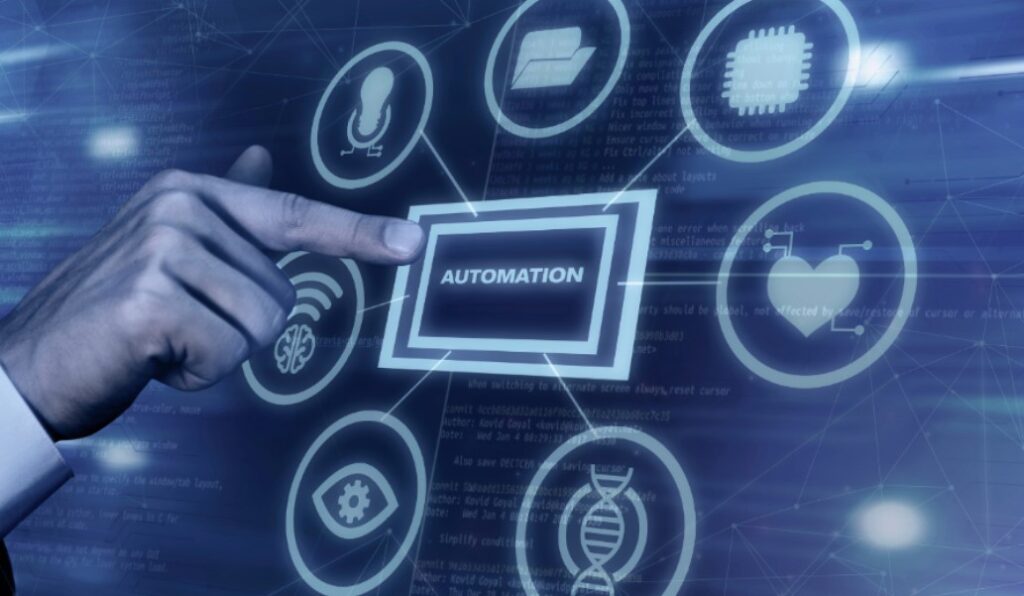
1. Enhanced Personalization
AI marketing tools excel in personalization, a key factor for engaging and retaining customers. By using customer data such as browsing history, purchasing behavior, demographic information, and preferences, AI tools can create highly personalized experiences that resonate with individual users. These personalized experiences lead to higher engagement rates and increased conversions.
For example, in email marketing, AI can automate the process of sending personalized messages based on a user’s activity or purchasing history. An e-commerce site might send a customer a discount offer for a product they recently viewed but didn’t purchase. Or, an AI tool could recommend new products based on what the customer has previously bought or browsed.
In addition, AI can personalize landing pages and website content in real-time, adjusting the copy, images, and even offers based on the individual’s interests. Personalization leads to a deeper connection with customers, fostering brand loyalty and improving sales over time.
2. Improved Decision Making Through Data-Driven Insights
AI marketing tools help marketers make more informed decisions by offering detailed insights derived from data analysis. These tools can process vast amounts of data quickly, highlighting patterns and trends that may not be immediately apparent to a human marketer.
For instance, predictive analytics can forecast consumer behaviors such as likelihood to buy, lifetime value, or churn probability. By using AI tools to analyze customer journeys, businesses can adjust their marketing strategies, optimize ad spending, and target the right audience at the right time. AI’s ability to provide insights into customer behavior is invaluable, allowing businesses to be more proactive and less reactive.
AI also enables marketers to test and optimize campaigns in real-time. AI can automatically adjust ad targeting or allocate budget to the best-performing channels based on performance metrics, resulting in better resource utilization and increased return on investment (ROI).
3. Increased Efficiency Through Automation
One of the primary reasons businesses adopt AI marketing tools is to increase efficiency. By automating repetitive tasks, such as sending follow-up emails, posting on social media, or handling customer queries, AI tools free up time for marketers to focus on strategic tasks.
For example, AI-powered chatbots can handle customer inquiries 24/7, providing instant responses and guiding users through the sales funnel. These chatbots can answer frequently asked questions, offer product recommendations, and even assist with the purchase process.
Moreover, AI can automate content creation. Tools like GPT-3 (which powers many AI-driven content generators) can produce high-quality articles, blog posts, and even social media captions. This saves businesses time and money while ensuring consistent content production.
4. Better Customer Insights for Targeted Campaigns
AI marketing tools provide marketers with a deeper understanding of their customers. These tools track and analyze customer interactions across various touchpoints, from website visits to social media engagement and customer service conversations. The insights gained can help businesses understand their customers’ needs, preferences, and pain points, allowing for more effective targeting and content creation.
For example, AI tools can analyze which topics or types of content resonate with different audience segments, enabling businesses to create campaigns that are more likely to capture attention. By understanding customer behavior, businesses can create relevant, timely, and impactful campaigns that resonate with their target audience.
Top AI Marketing Tools to Use in 2024

1. HubSpot AI Marketing Tools
HubSpot is one of the most popular inbound marketing platforms, offering a suite of AI-powered tools to help businesses automate and optimize their marketing campaigns. HubSpot’s AI tools focus on lead scoring, email automation, content personalization, and customer analytics.
HubSpot’s AI tools analyze data to provide actionable insights that help businesses make smarter decisions. The platform’s AI capabilities allow businesses to automate lead nurturing by sending personalized messages based on customer behavior, improving conversion rates. HubSpot also provides automated reporting and data analysis, so businesses can track their marketing performance without spending hours on manual data gathering.
Pros:
- Easy-to-use interface with robust automation features.
- Powerful customer relationship management (CRM) and marketing automation tools.
- AI-driven insights that improve decision-making.
Cons:
- Pricing can be expensive for smaller businesses, especially at higher tiers.
- Limited customization options in some areas.
Price: HubSpot’s pricing starts at $45 per month for the Starter plan, with more advanced features available at higher price points.
Use Case: HubSpot is ideal for businesses looking to integrate marketing automation with CRM, providing a seamless workflow for lead generation and nurturing.
2. Drift AI
Drift is a conversational marketing platform that uses AI to engage website visitors in real time. Drift’s AI-powered chatbots qualify leads, answer questions, and book meetings with sales teams. Drift focuses on improving lead generation by creating interactive and personalized conversations with visitors.
Drift’s AI capabilities allow businesses to target website visitors with personalized messages based on their behavior. For example, a visitor browsing a product page may be greeted with a chatbot message offering assistance or a special promotion for that particular product. Drift’s tools help businesses generate leads, improve customer engagement, and streamline the sales process.
Pros:
- Real-time chatbot engagement and lead qualification.
- Integration with various CRM and marketing automation tools.
- Increases conversions through personalized conversations.
Cons:
- Requires some setup and customization to optimize for specific needs.
- Pricing can be steep for small businesses or startups.
Price: Drift’s pricing starts at $50 per month for basic features, with custom pricing for more advanced plans and enterprise solutions.
Use Case: Drift is perfect for businesses focused on improving lead conversion rates through real-time, AI-driven conversations with website visitors.
3. Marketo AI
Marketo is an advanced marketing automation platform that offers AI-driven capabilities for lead scoring, predictive analytics, and campaign optimization. Marketo’s AI tools help businesses create personalized marketing campaigns across email, social media, and digital ads.
Marketo’s AI-powered features include advanced customer segmentation, predictive lead scoring, and automated campaign management. The platform uses machine learning to predict which leads are most likely to convert, allowing businesses to prioritize high-value prospects and allocate resources effectively. Marketo also integrates with other marketing platforms and CRMs, offering a comprehensive solution for enterprise-level businesses.
Pros:
- Advanced AI-powered segmentation and analytics.
- Customizable campaigns across multiple channels.
- Ideal for mid-to-large-sized businesses looking to scale.
Cons:
- Steeper learning curve for new users.
- Pricing is on the higher end, especially for smaller companies.
Price: Marketo’s pricing is customized based on business needs and can be costly, making it better suited for mid-sized to large enterprises.
Use Case: Marketo is ideal for businesses with large customer bases looking for sophisticated AI-powered tools for multi-channel marketing and campaign optimization.
Use Cases of AI Marketing Tools
AI marketing tools can be used in various ways to improve marketing strategies. Here are some specific use cases:
1. Lead Generation and Qualification
AI marketing tools can help businesses identify and qualify leads by analyzing customer data. For example, an AI-powered chatbot can engage with website visitors, gather information, and qualify leads based on their responses. AI can also help prioritize leads by predicting which ones are most likely to convert.
2. Personalized Email Campaigns
AI tools can create personalized email campaigns based on customer behavior. These tools segment email lists and send tailored content or offers to each segment, improving engagement and conversion rates.
3. Predictive Analytics for Sales Forecasting
AI tools use predictive analytics to forecast future sales and customer behavior. By analyzing historical data, AI can predict trends, identify potential opportunities, and suggest improvements to marketing campaigns to boost sales.
Where to Buy and How to Buy AI Marketing Tools
AI marketing tools are typically available directly from the vendors’ websites. For example, you can purchase HubSpot, Drift, and Marketo by visiting their official websites. Many of these platforms offer free trials or demo versions to help businesses test the tools before making a purchase.
When considering purchasing AI marketing tools, businesses should evaluate pricing, features, and scalability to ensure they choose the right platform for their needs. For instance, small businesses may opt for lower-cost options like HubSpot’s Starter plan, while larger enterprises may need more advanced tools like Marketo for complex marketing strategies.
To purchase AI marketing tools, visit the product websites and follow the instructions for selecting a plan, providing payment details, and accessing the platform.
For example, you can purchase HubSpot directly here, buy Drift here, and access Marketo’s platform here.
Frequently Asked Questions
1. What are AI marketing tools used for?
AI marketing tools help businesses automate tasks, analyze customer data, personalize marketing efforts, and optimize campaigns. They streamline marketing processes, enhance decision-making, and improve overall marketing performance.
2. How much do AI marketing tools cost?
Pricing for AI marketing tools varies widely. Some tools offer free versions with limited features, while paid plans typically start at $45 per month. The cost increases with advanced features and larger business needs, with enterprise-level platforms like Marketo often costing significantly more.
3. Can small businesses benefit from AI marketing tools?
Yes, small businesses can benefit from AI marketing tools, particularly for automating routine tasks, improving lead generation, and personalizing customer interactions. Many AI tools offer affordable plans suitable for businesses of all sizes.
